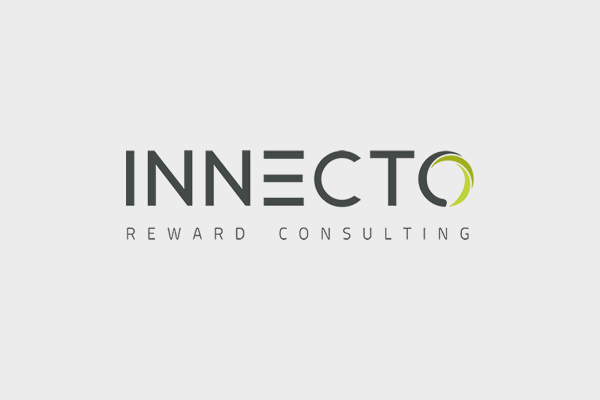Category: Employee engagement
Making Career Progression Visible, Actionable, and Engaging
Sarah Lardner | 30 October 2025
Employee engagement | Organisational Design | Retention
Many HR divisions have been promoting the career development agenda, often as part of job evaluation or role frameworking exercises. Yet, all too often, these frameworks never translate into something employees can actually use to plan their careers. Without effective pathways — and ways to communicate them — organisations are inadvertently pushing workers toward the exit, compounding the very attrition problems they are trying to solve.
Read more about Making Career Progression Visible, Actionable, and Engaging
Recognition, belonging and the power of connection: celebrating the International Day of Friendship
Holly Coe | 28 August 2025
Employee engagement | Culture | Employee Experience
When the government published its Get Britain Working Whitepaper in November 2024, it laid bare some stark figures relating to worker wellbeing and absenteeism. The paper cited “2.8 million people locked out of work due to long-term sickness” and claimed that mental health accounted for 25% of the rise in long-term sick among 16 to 49-year-olds between 2019 and 2022. Friendship may not appear in a balance sheet, or on many board meeting agendas, but its value to organisational culture and employee wellbeing is immeasurable.
The Value of a Medal - what can we learn from the Olympics?
Genni Fisk | 12 August 2024
Employee engagement | Recognition | Reward
Sunday marked the close of the Paris 2024 Olympics and the shift of everyone’s attention back away from celebrating Team GB’s successes against the medal table. But what people don’t realise is that the Olympics can teach us a lot when it comes to recognising and rewarding employees at work.
Read more about The Value of a Medal - what can we learn from the Olympics?
New benefits you may not have heard of - hype or real added value?
Mark Macoun | 25 July 2024
According to Glassdoor, 60% of people regard benefits and perks as a major factor in deciding whether or not to accept a job, and 80% would choose additional benefits over a pay raise. Benefits are now a crucial part of any Employee Value Proposition (EVP), helping to both attract and retain employees. If they are conceived and put together in the right way, they can also play a massive role in job satisfaction, productivity and loyalty.
Read more about New benefits you may not have heard of - hype or real added value?
How companies can retain and attract the right talent in 2023
Justine Woolf | 06 January 2023
Employee engagement | Talent | Recruitment | Retention
The current economic climate looks set to prevail well into 2023 so, with high inflation, a squeeze on talent and market volatility, challenging times lie ahead. I can see companies benefiting from investing within, both in terms of nurturing home-grown talent and in fixing any culture and connectivity glitches many have experienced and accepted since the pandemic. Meanwhile, attracting the best talent is likely to hinge on nailing the all-important employee value proposition, while continuing to focus on the traits of equity and transparency so important to the younger generation.
Read more about How companies can retain and attract the right talent in 2023
How to effectively communicate recognition strategies
Cathryn Edmondson | 25 November 2022
Employee engagement | Recognition
Effective communication for recognition strategies usually boils down to strong planning and delivery around the three key phases: pre-launch, launch and post-launch. This may sound obvious but there are plenty of key questions and considerations for each phase.
Read more about How to effectively communicate recognition strategies
Thought leadership: Top tips on maintaining team morale
Justine Woolf | 18 November 2022
Motivation | Employee engagement | Thought Leadership
The financial statement has landed, pointing to tough months ahead. During these testing times of cost-of-living and interest rate rises, employment attrition and government uncertainty, it can be difficult for employees to feel settled. A lack of stability outside work can quickly transfer to how people feel in their jobs, especially if they’re isolated by hybrid working. So how can you build and maintain morale to help them through it?
Read more about Thought leadership: Top tips on maintaining team morale
How to adapt your reward strategy to reflect shifts in work patterns
29 September 2022
Employee engagement | Flexible working | Hybrid Working
Hybrid and home working provide a host of benefits as well as shortcomings, and employee expectations with regards to this have changed because of Covid. So how can companies adapt their reward strategies to reflect that?
Read more about How to adapt your reward strategy to reflect shifts in work patterns
How to use non-monetary forms of reward as an alternative to bonuses
26 August 2022
Pay & Reward | Employee engagement | Reward Strategy | Employee Benefits
Inadequate total compensation can be a contributing factor to people leaving their jobs and sometimes there is no magic wand that non-monetary reward can wave. Having said that, it can significantly enhance any company’s offering, allow you to express your culture and demonstrate how you would like to treat your employees. Here are some key ways to work non-monetary reward into your overall package.
Read more about How to use non-monetary forms of reward as an alternative to bonuses
How to address the Great Resignation through employee benefits
18 August 2022
Employee engagement | Engagement | Reward | Wellbeing | Flexible Benefits | Remote Working
Coming out of the pandemic, data on the Great Resignation around employee discontent and ultimately turnover is very mixed. Some organisations looked after their employees during Covid, kept them connected, allowed them to work remotely and showed concern for their wellbeing.
Read more about How to address the Great Resignation through employee benefits
How are employees’ environmental and social values changing and what does this mean for your engagement strategy?
28 July 2022
Employee engagement | Responsible Reward
Over the past few years, we have seen an acceptance that the global business ecosystem is no longer sustainable if we carry on consuming at the current rate. This broad realisation has forced many businesses to look at how they’re running and make some fundamental changes to the way they incentivise their people.
What can you do to boost employee engagement
10 June 2022
Employee engagement | Employee communications | Engagement
Employee engagement is for all employees, not just a few. It is vital that any programme reaches and resonates with all employees to make a positive difference. But how do we do that? Firstly, we need to understand how engaged employees are and whether there are any areas of concern.
Read more about What can you do to boost employee engagement



















